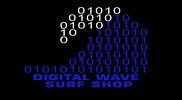 Loading... Please wait...
Loading... Please wait...- Home
- Internet Surfboards
Born a search engine company, Google over the years expanded its internet software products to include email, blogging, research, entertainment, maps, and much more. But if its official motto has always been "Don't Do Evil," its unofficial motto has been "Don't Get Left Behind." Other tech companies like Apple and Amazon have built ecosystems that include both hardware and software to not only enhance its customer experience but also to create greater differences between them and their competitors. Unwilling to get left behind, Google decided to get into the hardware business.
Though Google's initial hardware product was a smartphone (the Nexus, launched in 2010), its first laptop was the Chromebook, launched in 2011. A stripped-down laptop with the Chrome OS (a Linux kernel overlaid with a modified Chrome browser), the Chromebook was designed to be used most efficiently with an internet connection and web-based apps, particularly Google web apps, a substantial difference between it and Windows OS-based laptops.
As a laptop, the Chromebook has distinct advantages and disadvantages. Its advantages:
- its elimination of bulky, power-hungry hardware components like hard disk and optical drives makes it both ultraportable and power-saving for longer battery life
- an OS architecture that has built-in layers of security making additional internet security software unnecessary
- a web-first OS allows it to boot up, wake up, and update more quickly
- tightly-integrated Google web apps make working in the cloud more efficient
- its hardware configuration of bare essentials makes it very affordable, usually in the $200-300 range (except for the Chromebook Pixel, a luxury Chromebook in the $1000 range.)
Its disadvantages include the need for a Wi-Fi connection (unless a cellular broadband model or certain Google apps that work offline are used) and the incompatibility of popular software products, most notably Microsoft Office, iTunes, Adobe Photoshop and Premiere, most PC games, and most camcorder software.
Google outsources the manufacturing of most Chromebook models (except for the Chromebook Pixel) to existing computer manufacturers like Acer, Asus, Dell, Hewlett-Packard, Lenovo, Samsung, and Toshiba. Although Chromebooks from these different manufacturers are for the most part similar, there are notable differences between them. While most Chromebooks carry between 2-4GB of RAM and 16-32GB solid state drives, Chromebooks from competing manufacturers usually differ in terms of the CPU, GPU, display size, display resolution, display touch, number and kinds of ports, and weight.
Use our comparison engine to discover the exact differences between Chromebooks from competing manufacturers (you can compare up to 4 Chromebooks at a time on the same webpage.)
In 2012, Google introduced a tablet line with the same moniker as its smartphone line, the Nexus, but with numeric modifiers (indicating screen size) to distinguish it. Manufactured by Asus, the original Nexus 7 featured a NVIDIA processor, 1GB RAM, 8GB or 16GB solid state drives (the 8GB model was later discontinued and a 32GB model was introduced), 1280X800 resolution display, 802.11 b/g/n Wi-Fi, Bluetooth 3.0, NFC, micro-USB 2.0, 1.2 megapixel front-facing camera, .41" thick body, and 12 oz weight. The second generation, and current, Nexus 7, released in 2013, contains significant upgrades, including a Qualcomm processor, 2GB RAM, 1920X1200 resolution display, 802.11 a/b/g/n Wi-Fi, Bluetooth 4.0, cellular connectivity on select models, Slimport, 5 megapixel rear-facing camera, .34" thick body, and 10.2 oz weight.
Manufactured by Samsung, the Nexus 10 comes with a Samsung processor, 2GB RAM, 16GB or 32GB solid state drive, 2560X1600 resolution display, 802.11 a/b/g/n Wi-Fi, Bluetooth 4.0, NFC, micro-HDMI, micro-USB 2.0, 1.9 megapixel front-facing camera, 5 megapixel rear-facing camera, .35" thick body, and 21.3 oz weight. Try our comparison engine to quickly scan the differences between the Google Nexus models.
